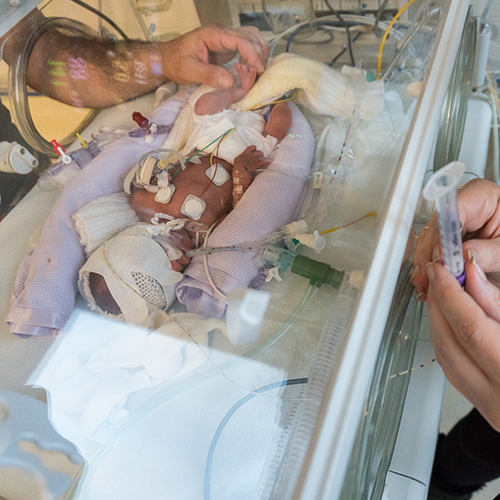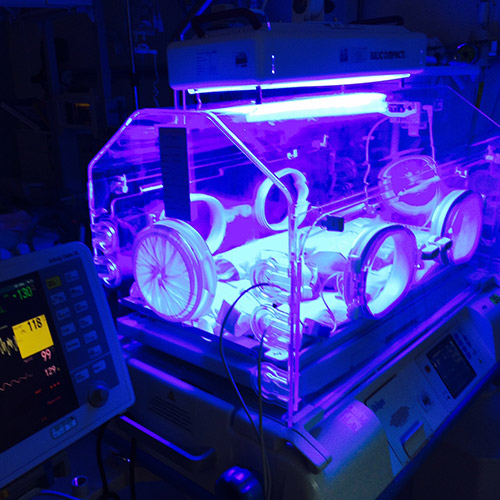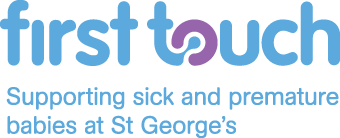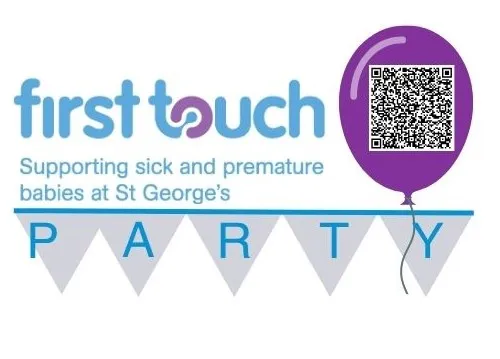"When my daughter arrived early she was so premature that her immature digestive system couldn’t tolerate formula and I was simply too ill after her birth to express milk for her. I’ll be forever grateful to the women whose donated breast milk kept my baby alive for the first two weeks of her life."


As part of our commitment to breastfeeding mothers with babies on the nnu First Touch has funded breast pumps and a breast milk pasteuriser as well as cool bags to help mothers transport their expressed milk. We are also proud to support the work of St George’s Hospital Milk Bank.
Breast milk is the ideal food for all babies but is especially important for very premature and sick babies. Breast milk contains a complete spectrum of nutrients and immune-system compounds which are not present in formula milk. Giving premature babies breast milk helps development and protects them against infections including the common, but life-threatening, gut infection called necrotising enterocolitis.
The realities of having a tiny and possibly very sick baby can obviously impact on a mother’s ability to express enough milk, particularly in the vitally important early days. There are also mothers whose babies are born early because of their own ill-health or who have to spend time in intensive care after their baby’s birth. The donated breast milk in the hospital milk bank helps save the lives of these babies when their mothers cannot provide them with sufficient breast milk of their own.
Donating breast milk is incredibly rewarding, and very easy. If you’re considering becoming a donor the following information tells you all you need to know.
You can begin donating as soon as breastfeeding is established. Your baby must be no older than 12 weeks when you begin and you can continue to donate until your baby is 6 months old or when your baby starts weaning, as the composition of your milk will change during this stage. Your body will supply more milk to cope with the demand of expressing so you can be sure you will still have enough milk for your own baby. You will need a freezer to store your expressed milk in
You cannot donate if you smoke, use drugs or have had a blood transfusion since 1980. There are some other health reasons which may exclude you but the milk bank team will discuss these with you.
Potential donors are invited to come to St George’s for a blood test, to complete a health and lifestyle questionnaire and to sign a consent form. You will receive your results within 10 days over the phone. Then it’s simply a case of pumping and freezing your milk in the bottles given to you by the milk bank. It can then be dropped off by you or collected by a member of the community team.
If you'd like to find out about becoming a donor for the St George’s Milk Bank please send an email to [email protected] with your name and contact number and letting them know how old your baby is.
For general information on milk donation visit www.ukamb.org.

